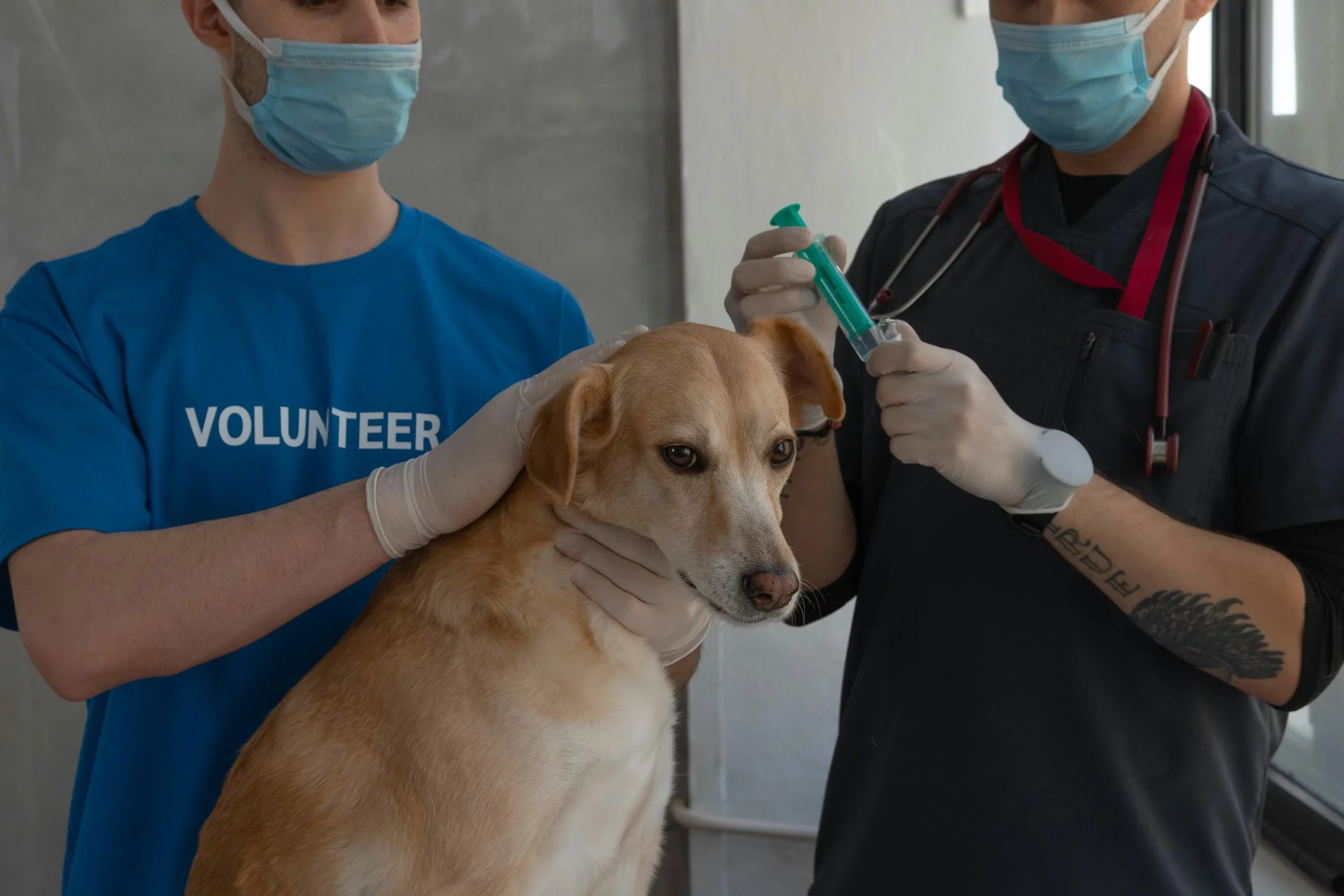What is a Veterinary Assistant?
A Veterinary Assistant is a vital member of the veterinary healthcare team responsible for assisting veterinarians and veterinary technicians in providing medical care and treatment to animals. Veterinary Assistants perform a variety of tasks, including handling animals, preparing exam rooms, assisting with medical procedures, and providing compassionate care and support to both animals and their owners.
Veterinary Assistant Job Description
We are currently seeking compassionate and dedicated individuals to join our veterinary team as Veterinary Assistants. As essential members of our animal care facility, successful candidates will play a crucial role in providing high-quality veterinary care and support to our furry patients and their owners.
As a Veterinary Assistant, you will have the opportunity to work closely with veterinarians, veterinary technicians, and other staff members to ensure the health, safety, and well-being of our animal patients.
The ideal candidate will possess a strong passion for animals, excellent communication skills, and the ability to thrive in a fast-paced, dynamic environment.
What Does a Veterinary Assistant Do?
- Animal Handling and Restraint: Handle and restrain animals safely and compassionately during examinations, treatments, and procedures, ensuring their comfort and safety while minimizing stress and anxiety.
- Assist with Medical Procedures: Prepare examination rooms, equipment, and supplies for veterinary procedures, including vaccinations, blood draws, diagnostic tests, and surgical interventions, to facilitate efficient and effective patient care.
- Provide Support to Veterinarians and Technicians: Assist veterinarians and veterinary technicians with patient care tasks, such as administering medications, dressing wounds, applying bandages, and monitoring vital signs, under their supervision and direction.
- Educate Pet Owners: Communicate with pet owners about preventive care, treatment plans, medication instructions, and postoperative care guidelines, providing education and guidance to promote pet health and well-being.
- Maintain Cleanliness and Sterility: Ensure cleanliness and sterility of examination rooms, surgical suites, equipment, and instruments by following infection control protocols, disinfecting surfaces, and properly handling and disposing of biohazardous materials.
- Handle Administrative Tasks: Perform various administrative tasks, such as scheduling appointments, answering phone calls, processing payments, and maintaining medical records, to support efficient clinic operations and excellent customer service.
- Assist with Animal Care and Feeding: Provide basic animal care, including feeding, grooming, exercising, and monitoring hospitalized patients, to ensure their comfort, hygiene, and nutritional needs are met during their stay at the clinic.
- Monitor Patient Recovery: Observe postoperative patients, monitor their recovery progress, and report any changes in condition to veterinarians or veterinary technicians to ensure timely intervention and appropriate patient care.
- Maintain Clinic Inventory: Monitor inventory levels of medical supplies, medications, and equipment, and assist with ordering and stocking inventory as needed to support clinic operations and patient care.
How Much Do Veterinary Assistants Make?
The average veterinary assistant salary in the USA is $33,150 per year or $15.94 per hour. Entry level positions start at $29,161 per year while most experienced workers make up to $43,683 per year.
Skill Requirements
- Animal Handling Skills: Veterinary Assistants must possess excellent animal handling skills to safely and effectively handle and restrain animals during examinations, treatments, and procedures, minimizing stress and ensuring patient safety.
- Communication Skills: Veterinary Assistants should have strong communication skills to interact effectively with veterinarians, veterinary technicians, pet owners, and other staff members, conveying information clearly, empathetically, and professionally.
- Attention to Detail: Veterinary Assistants must demonstrate attention to detail in performing medical procedures, handling medications, and documenting patient information accurately to ensure patient safety and compliance with protocols.
- Compassion and Empathy: Veterinary Assistants should have a genuine love for animals and demonstrate compassion, empathy, and sensitivity in providing care and support to sick, injured, or distressed animals and their owners.
- Teamwork and Collaboration: Veterinary Assistants must work collaboratively as part of a veterinary healthcare team, communicating openly, sharing responsibilities, and supporting colleagues to achieve common goals and deliver high-quality patient care.
- Physical Stamina: Veterinary Assistants should have physical stamina and endurance to stand for long periods, lift and restrain animals of various sizes and weights, and perform repetitive tasks in a fast-paced, physically demanding environment.
Example KPIs for a Veterinary Assistant
- Patient Satisfaction and Pet Owner Feedback: This KPI measures patient satisfaction scores, feedback from pet owners, and client retention rates to assess the quality of care and customer service provided by Veterinary Assistants and the veterinary clinic.
- Animal Handling and Restraint Safety: This KPI evaluates Veterinary Assistants’ effectiveness in safely and compassionately handling and restraining animals during examinations, treatments, and procedures, minimizing stress and ensuring patient safety.
- Clinical Support and Efficiency: This KPI assesses Veterinary Assistants’ support and efficiency in assisting veterinarians and veterinary technicians with medical procedures, preparation of exam rooms, and patient care tasks to optimize clinic workflow and patient throughput.
- Client Communication and Education: This KPI tracks Veterinary Assistants’ communication skills, pet owner education efforts, and compliance with medication instructions and postoperative care guidelines to promote pet health and owner satisfaction.
- Inventory Management and Clinic Organization: This KPI measures Veterinary Assistants’ effectiveness in managing clinic inventory, ordering supplies, and maintaining cleanliness and organization in examination rooms and treatment areas to support clinic operations and patient care.
How Can Glider AI Help You with Hiring a Veterinary Assistant?
Glider’s recruitment platform is designed to prioritize competency over credentials, enabling organizations to assess candidates’ skills objectively and efficiently. Utilize Glider AI Skill Intelligence™ to streamline the hiring process, identify top-quality Veterinary Assistant candidates, and ensure a mobile-first, candidate-friendly experience.
Glider AI’s Unique Features
- Verify Medical Licenses
- Validate Hundreds of Medical, Clinical, and Technical Skills
- Ensure Hiring Compliance
- Conversational Chatbot for Talent Screening
- Powerful candidate analytics
- Streamline Healthcare Hiring with AI and Automation
Go ahead and spotlight your Veterinary Assistant with Glider AI today!
Schedule a Demo or contact us at info@glider.ai




